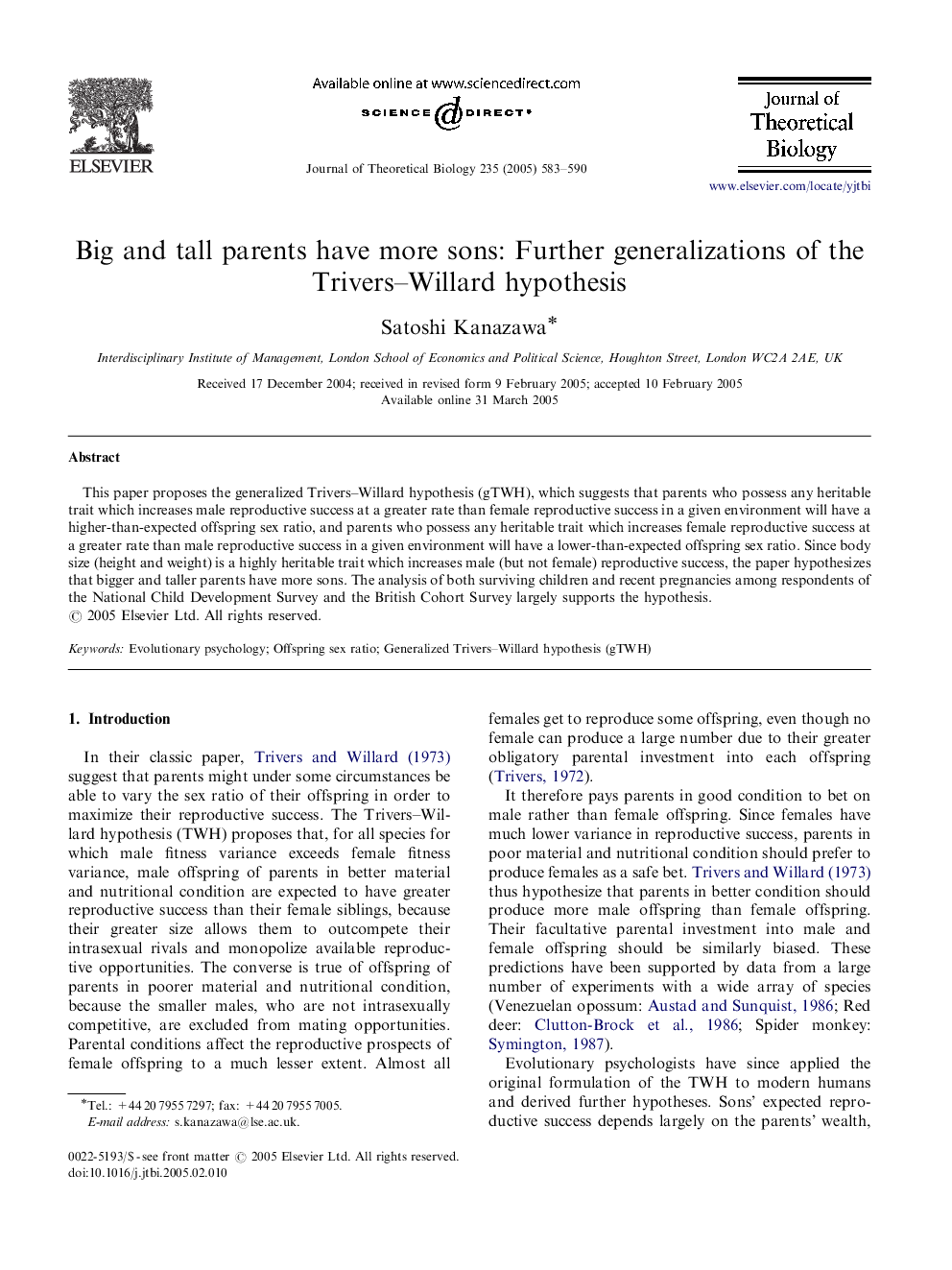| Article ID | Journal | Published Year | Pages | File Type |
|---|---|---|---|---|
| 9469699 | Journal of Theoretical Biology | 2005 | 8 Pages |
Abstract
This paper proposes the generalized Trivers-Willard hypothesis (gTWH), which suggests that parents who possess any heritable trait which increases male reproductive success at a greater rate than female reproductive success in a given environment will have a higher-than-expected offspring sex ratio, and parents who possess any heritable trait which increases female reproductive success at a greater rate than male reproductive success in a given environment will have a lower-than-expected offspring sex ratio. Since body size (height and weight) is a highly heritable trait which increases male (but not female) reproductive success, the paper hypothesizes that bigger and taller parents have more sons. The analysis of both surviving children and recent pregnancies among respondents of the National Child Development Survey and the British Cohort Survey largely supports the hypothesis.
Related Topics
Life Sciences
Agricultural and Biological Sciences
Agricultural and Biological Sciences (General)
Authors
Satoshi Kanazawa,
